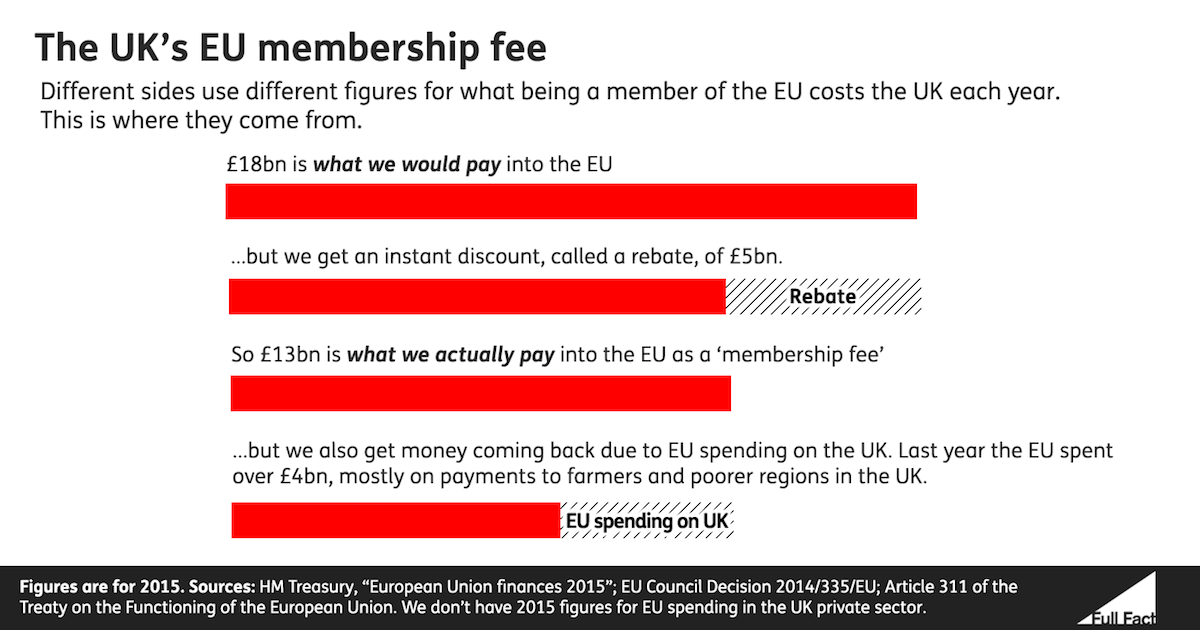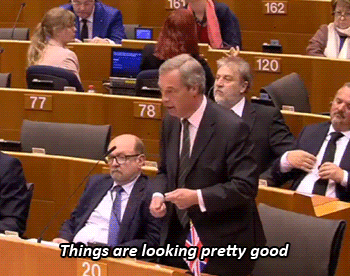Former PM David Cameron felt "badly let down" by Theresa May during the EU referendum campaign, his former director of communications has said.
Sir Craig Oliver, a former key aide to Mr Cameron, said the then home secretary failed to back the Remain campaign 13 times and was regarded by some as "an enemy agent".
He also said Boris Johnson believed the Leave campaign would be "crushed".
Neither Downing Street nor the foreign secretary has responded to the claims.
The claims are made in a book - Unleashing Demons: The Inside Story Of Brexit - serialised in the Mail on Sunday.
In it, Sir Craig says Mr Cameron briefly considered staying on as prime minister, despite losing the referendum.
However, he says he decided against it, saying he feared remaining in Downing Street would have left him "being prepared for the slaughterhouse".
Sir Craig says Mrs May only came "off the fence" in favour of Remain after Mr Cameron became "visibly wound up" and gave her a dressing down over the telephone.
"Amid the murder and betrayal of the campaign, one figure stayed very still at the centre of it all - Theresa May. Now she is the last one standing," wrote Sir Craig, who was Mr Cameron's director of communications for five years.
Image caption Sir Craig (left) was Downing Street director of communications for five years
Sir Craig's book suggests Mr Cameron was left uncertain over whether Mrs May favoured staying in the European Union.
He said Mrs May was referred to dismissively by aides as "submarine May" during the campaign.
The then home secretary's "sphinx-like approach" became difficult, he added in the book, as the press were questioning which way she would jump.
Sir Craig said matters finally came to a head after a newspaper warned Mr Cameron faced "last-minute opposition" from Mrs May to his deal for EU reform.
Train phone call
"Later, on a train to Chippenham for a speech, DC [David Cameron] is visibly wound up by the report.
"Suddenly he picks up his mobile and calls May, asking her to make clear we have been victorious in our plan to crack down on 'swindlers and fiddlers' attempting to come into the UK," he wrote.
"When he hangs up he seems to think he's made an impact. Later the home secretary issues a statement saying she believes there's 'the basis for a deal here'."
Norman Smith, BBC assistant political editor, says the book gives "a sense of the deep anger and frustration within Mr Cameron's top team at Mrs May's lukewarm support during the referendum campaign".
Sir Craig also claims Mr Johnson, now foreign secretary, was "genuinely in turmoil" about supporting the Leave campaign and had been "flip-flopping within a matter of hours" of declaring his intention.
The former Mayor of London became a prominent leader of the pro-Brexit campaign.
Sir Craig writes that, the day before throwing his weight behind the Leave campaign, Mr Johnson sent a text to Mr Cameron warning him that he would be campaigning for Brexit.
However, he says Mr Johnson later sent a second message suggesting he could back Remain.
"I ask DC what makes him so sure Boris is wobbling. He reads out some parts of the text including the phrase 'depression is setting in', followed by a clear sense that he's reconsidering.
"Neither of us is left in any doubt," he added.
"I am struck by two things: Boris is genuinely in turmoil, flip-flopping within a matter of hours; and his cavalier approach."
Sir Craig says Mr Cameron received a final text message from Mr Johnson saying he would be backing Leave just nine minutes before he publicly announced his intentions.
He writes that he believes Mr Johnson was really a "confused inner", saying his previous conversations with him confirmed that view.
Meanwhile, Mr Johnson has told BBC One's Andrew Marr show that the process of beginning Brexit and triggering should not be allowed to "drag on".
Implying that the government might have to trigger Article 50 before the European Parliament elections in May, he said it would make no sense to allow more UK MEPs to be elected given that UK was set to quit the EU.
He said: "We've got to do a lot of work to get our - you know, get our ducks in order and that is - that is going on."
He added: "The opportunity is to do a deal that I think would be very much in the interests, not only of the - of the UK but also of our friends and partners in the EU.
"And what I'm finding so interesting, having spent a lot of time over the last week or so talking to other countries is they're starting to see the opportunities from Brexit."


